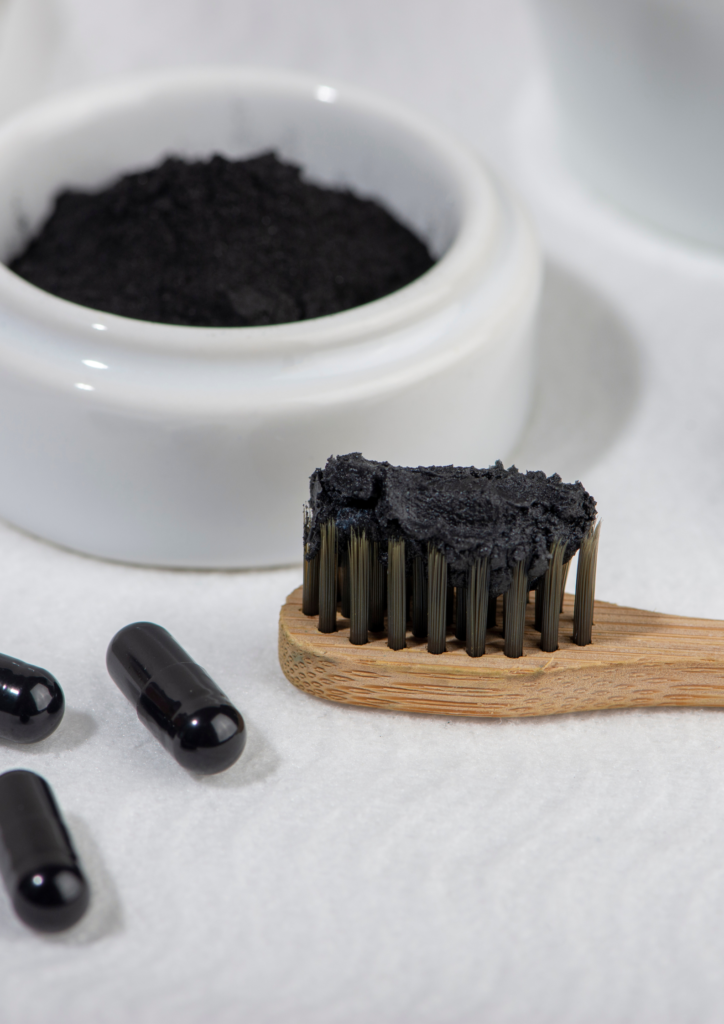Black Seed Oil: Ancient “Miracle” Medicine Backed by Science
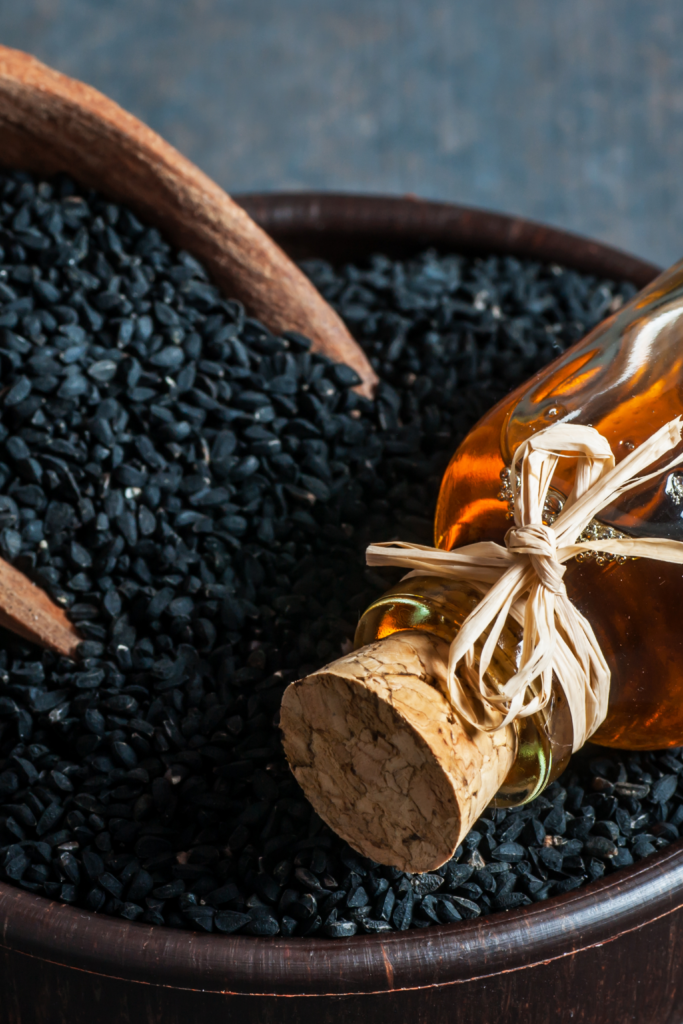
Black seed oil, also known as Nigella sativa oil or black cumin, has been used for over 2,000 years for its powerful healing properties. Called “Melanthion” by Hippocrates. It’s revered in both traditional herbalism and modern wellness circles. Packed with nutrients like thymoquinone, omega-3/6 fatty acids, flavonoids, and essential vitamins, this potent oil works wonders for everything from inflammation to digestion, immunity, skin health—and much more.
In this comprehensive guide, we explore:
- What black seed oil actually is
- Its nutritional profile and active compounds
- 12+ proven health benefits with tables & quotes
- Practical dosing, usage tips, and precautions
- Science-backed studies for each benefit
- Real-user testimonials
Let’s dive deep into why black seed oil is one of the most promising natural remedies available today.
1. What Is Black Seed Oil?
Black seed oil is extracted from the seeds of the Nigella sativa plant—a flowering herb native to Western Asia, Eastern Europe, and North Africa. Known as black cumin or kalonji, these tiny black seeds have a bitter, warm flavor and have been used as both a spice and medicine for millennia. The oil is rich in:
- Thymoquinone (TQ): the superstar phytochemical known for potent anti-inflammatory, antioxidant, and anti-cancer effects.
- Omega‑3 & Omega‑6 fatty acids: essential fats that support heart and brain health.
- Flavonoids & saponins: protective protective botanical compounds.
- Vitamins B1, B2, B3; minerals: calcium, iron, and zinc.
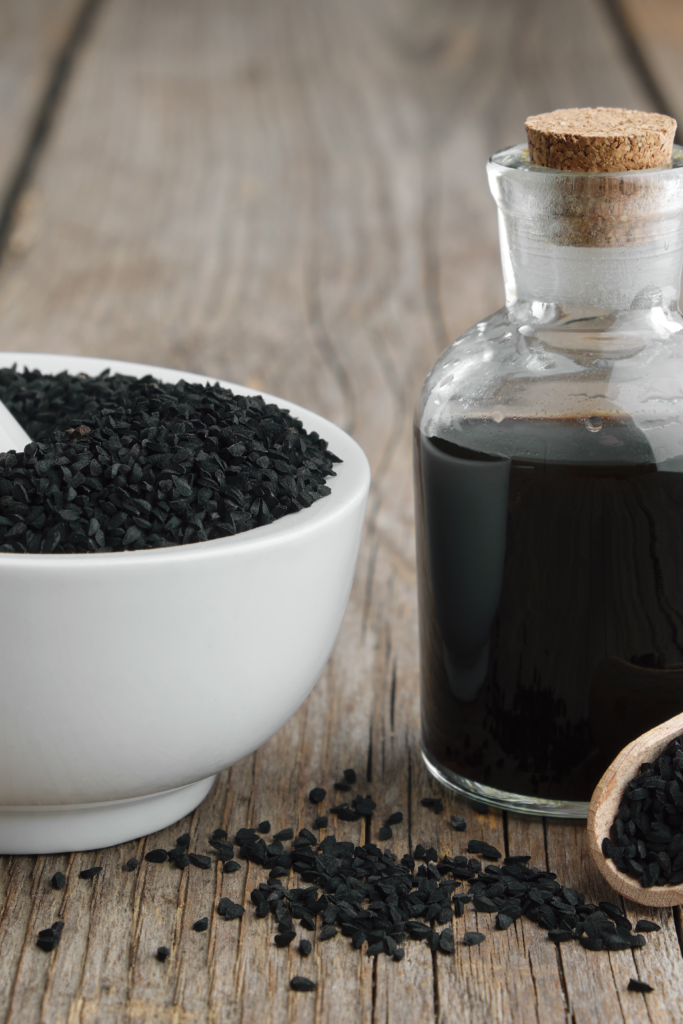
2. Nutritional Profile
Here’s a snapshot of what’s inside one tablespoon (~13 g) of cold-pressed black seed oil:
| Nutrient / Compound | Benefit & Info |
|---|---|
| Thymoquinone (TQ) | Powerful antioxidant and anti-inflammatory agent; most studied compound |
| Omega‑6 (linoleic acid) | Supports skin and cardiovascular health |
| Omega‑3 (alpha‑linolenic acid) | Anti-inflammatory, heart- and brain-supportive |
| Vitamin B1, B2, B3 | Energy production, nerve function |
| Calcium, Iron, Zinc | Bone health, immunity, oxygen transport |
| Flavonoids, Alkaloids | Antioxidant and antimicrobial support |
3. Major Health Benefits
A. Anti-Inflammatory Power
Chronic inflammation causes many diseases. Black seed oil‘s thymoquinone inhibits pro-inflammatory cytokines .
In one animal study, a dose of 2–4 mL/kg showed comparable pain relief to diclofenac.
| Effect | Study Type | Outcome |
|---|---|---|
| Arthritis in rats | Animal study | Reduced swelling, pain relief |
| RA patients | RCT | Lowered CRP; increased anti-inflammatory IL-10 |
B. Antioxidant Defense
Black seed oil is rich in antioxidants that neutralize free radicals. Animal studies show lower MDA and higher GSH activity .
“Bioactive compounds in black cumin support immunity and overall well‑being…”
C. Immune Support & Antimicrobial Action
Traditional use and lab studies show black seed oil fights bacteria, viruses, fungi . Ozonated versions enhance effects.
- Blocks Staph, E. coli, Salmonella
- Antifungal and antiviral benefits
D. Respiratory & Asthma Support
Studies show black seed oil eases asthma and COPD by reducing airway inflammation.
One 2020 review found inhaled black seed improved lung function in asthma sufferers .
E. Blood Sugar & Metabolic Syndrome
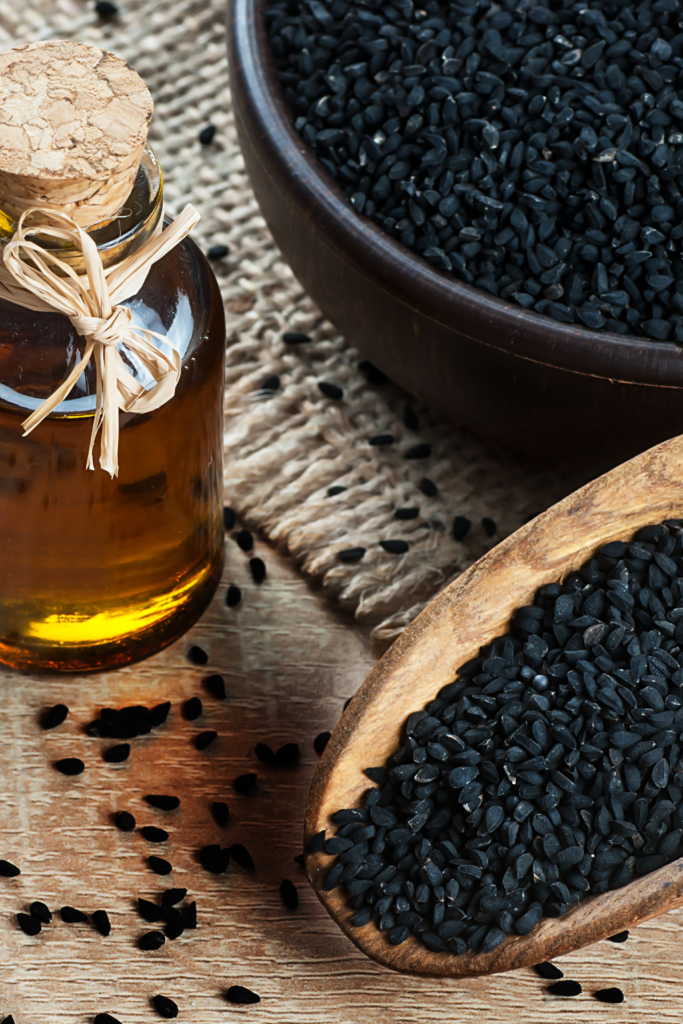
Multiple clinical trials report black seed oil’s ability to lower fasting glucose, HbA1c, and improve cholesterol .
- 2,000 mg/day for 8 weeks → decreased weight, BMI, waist size
- Cholesterol, BP improved after 8 weeks of 2.5 mL twice daily
F. Cardiovascular Support
Review shows black seed (2.5 mL/day) reduces systolic/diastolic BP and LDL, triglycerides.
G. Gut & Digestive Aid
Promotes bile flow, reduces bloating, has antimicrobial benefits against parasites .
H. Skin Conditions & Beauty
Helps combat acne, eczema, psoriasis, vitiligo and boosts scalp health .
- 78% reduction in acne severity in 60 days
- Vitiligo pigmentation improved after 6 months
- Moisturizes scalp, reduces dandruff
I. Fungal & Antimicrobial Effects
In vitro studies show black seed oil is as effective as amphotericin B against fungi.
J. Potential Anti-Cancer Properties
Lab studies show inhibitory effects on various cancer cells . More human studies needed.
K. Weight Loss & Appetite Control
Weight loss observed in obese women after 2 g/day for 8 weeks .
L. Liver & Kidney Protection
Animal research suggests black seed protects against toxin-induced organ damage.
4. How to Use Black Seed Oil
Oral Use:
- Typical dose: 1–5 g/day (~1 tsp to 1 tsp oil)
- 2,000 mg/day supports weight loss; 2.5 mL twice daily for metabolic benefits
- Use raw, mixed with honey or juice to mask taste
Topical Use:
- Apply directly for skin conditions, scalp health
Culinary:
- Use as salad dressings or stir-ins — keep it unheated to preserve nutrients
5. Safety & Precautions
- Generally safe for short-term use (<3 months)
- May potentiate blood-thinning effects—avoid before surgery
- Avoid during pregnancy, breastfeeding, bleeding disorders, or on hypertensive/anticoagulant meds
- Possible mild GI discomfort/allergies; patch test for topical use
“Only try black seed oil under medical supervision—especially if pregnant or on medication.”
6. Choosing Quality Oil
Look for:
- Cold-pressed, unfiltered, organic black seed oil
- Third-party testing (NSF, USP, ConsumerLab)
- Reviews praising “energy” and “joint pain relief” are promising—but always verify labels and sources
7. Real Testimonials
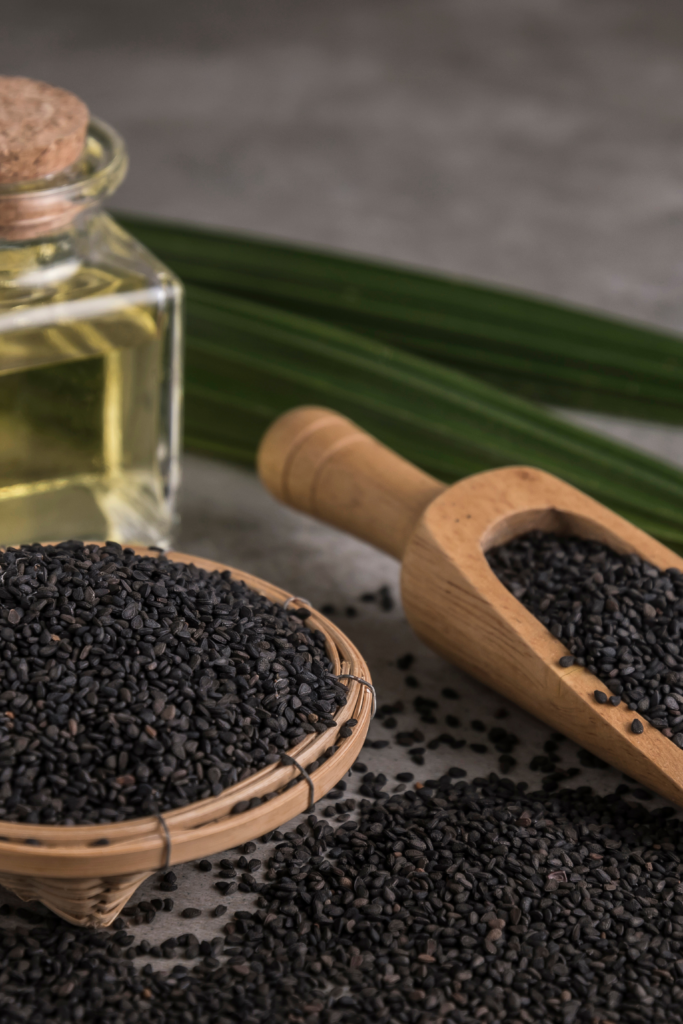
On Amazon, users report:
“Feeling better after only five days!”
“Great for joint pain and energy”—reviewers say
These anecdotal praises often reflect the results seen in clinical trials.
8. Summary Table
| Health Area | Benefits | Evidence & Notes |
|---|---|---|
| Inflammation / Pain | TQ comparable to NSAIDs | Animal/human trials |
| Heart & Metabolic Health | Reduces BP, LDL, blood sugar | RCTs 2–8 weeks |
| Immune & Respiratory | Anti-asthma, antimicrobial | Reviews + RCTs |
| Gut & Digestion | Bile production, parasite kill | Traditional & lab data |
| Skin & Hair | Eczema, acne, dandruff, vitiligo | Clinical studies + dermatology sources |
9. Conclusion
Black seed oil—once a staple of ancient remedies—is proving its worth in modern science across a wide range of health concerns. From reducing inflammation to supporting heart health, boosting immunity, and improving skin and gut function, it’s one of the most versatile natural oils known.
Whether you take it orally, apply it topically, or use it culinarily, respect proper dosing and choose quality, third-party tested products. Avoid during pregnancy or while on blood thinners unless under medical guidance.
As an affiliate, we may earn from qualifying purchases, but at no extra cost to you.



